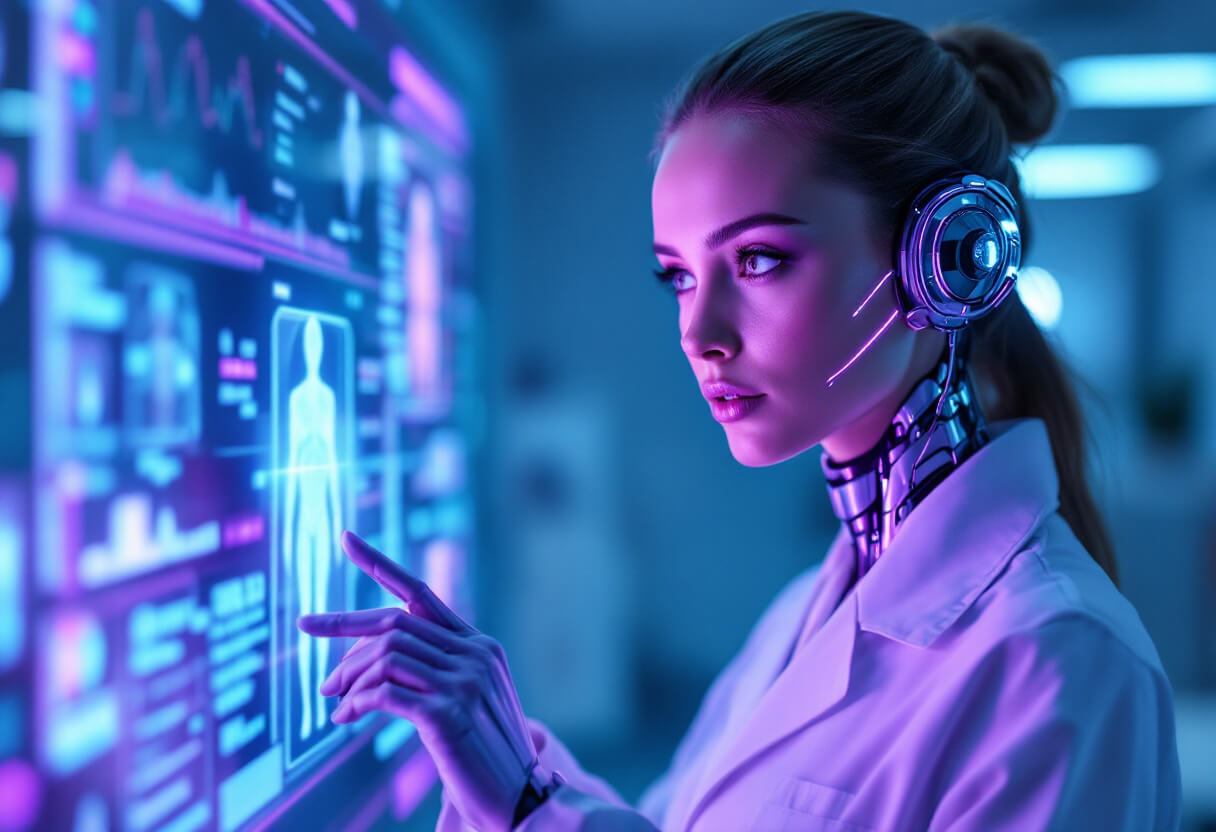NVIDIA’s recent unveiling of the GeForce RTX 5090 graphics card marks a significant advancement in computing technology. While primarily designed for gaming and professional graphics tasks, the RTX 5090’s capabilities extend far beyond, offering transformative potential in the field of mental health care. By integrating this powerful GPU into psychological practices, therapists can enhance treatment methods, improve patient outcomes, and pioneer innovative therapeutic approaches.

1. Enhanced Virtual Reality Therapy
Virtual Reality (VR) has become a valuable tool in treating various psychological disorders, including anxiety, PTSD, and phobias. The RTX 5090’s advanced GPU capabilities can significantly enhance VR therapy:
• Ultra-Realistic Environments: With 21,760 CUDA cores and 32 GB of GDDR7 memory, the RTX 5090 can render highly detailed virtual environments, providing patients with immersive experiences that closely mimic real-world scenarios.
• Seamless Performance: The card’s substantial memory bandwidth of 1,792 GB/s ensures smooth and lag-free VR sessions, allowing patients to remain fully engaged without technical distractions.
2. AI-Powered Mental Health Tools
Artificial Intelligence (AI) is increasingly being utilized in mental health care to provide deeper insights and personalized treatments:
• Real-Time Sentiment Analysis: The RTX 5090’s fifth-generation Tensor Cores enable real-time processing of complex AI algorithms, allowing for the analysis of facial expressions, voice tones, and body language during therapy sessions. This provides therapists with immediate insights into a patient’s emotional state.
• Personalized Therapy Plans: Leveraging AI, therapists can develop customized treatment plans based on individual patient data, enhancing the effectiveness of therapeutic interventions.
3. Advancements in Teletherapy
The rise of teletherapy has made mental health services more accessible. The RTX 5090 can further improve the quality of remote therapy sessions:
• High-Quality Video Streaming: The GPU’s support for DisplayPort 2.1 enables high-resolution video calls with minimal latency, fostering a more personal and engaging connection between therapists and patients.
• Augmented Reality (AR) Integration: Therapists can incorporate AR elements into sessions, such as interactive exercises or visual aids, to enhance therapeutic techniques and patient engagement.
4. Accelerated Data Analysis and Research
The RTX 5090’s computational power can expedite research and data analysis in psychology:
• Large-Scale Data Processing: Researchers can analyze extensive datasets more efficiently, leading to quicker insights and advancements in mental health studies.
• Training Machine Learning Models: The GPU’s capabilities facilitate the development of sophisticated machine learning models to predict mental health trends and outcomes, aiding in early intervention strategies.
5. Interactive Training and Simulations
Training for mental health professionals can be enhanced through high-fidelity simulations powered by the RTX 5090:
• Realistic Clinical Scenarios: Trainees can engage with lifelike simulations to practice and refine their therapeutic skills in a controlled environment.
• Patient Role-Playing: Simulated interactions allow both therapists and patients to rehearse coping strategies and communication techniques, improving real-world application.
6. Innovative Creative Therapies
The RTX 5090 opens new avenues for creative therapeutic approaches:
• Art and Music Therapy: The GPU can generate real-time visual and auditory stimuli, providing dynamic tools for creative expression in therapy sessions.
• Gamified Interventions: Interactive and engaging therapeutic games can be developed to assist children or individuals who benefit from alternative therapeutic methods.
Conclusion
The NVIDIA GeForce RTX 5090 represents a significant technological advancement with the potential to revolutionize mental health care. Its integration into psychological practice can enhance therapeutic techniques, improve patient engagement, and accelerate research, marking a substantial leap forward in the treatment of psychological issues.
Integrating NVIDIA’s GeForce technology into SoulMatcher.app can significantly enhance its capabilities in predicting and reducing divorce probabilities. The advanced AI processing power enables the development of sophisticated machine learning models that analyze complex relational data, identifying patterns indicative of marital discord with high accuracy. Real-time sentiment and behavior analysis becomes feasible, allowing the platform to evaluate user interactions and provide immediate feedback on potential relationship concerns. Additionally, the GPU supports personalized relationship coaching by assessing individual dynamics and offering tailored advice to strengthen partnerships. The RTX 5090’s prowess in rendering high-quality virtual environments facilitates immersive virtual reality therapy sessions, where couples can engage in scenarios designed to improve communication and problem-solving skills. Furthermore, its capacity for large-scale data processing enables continuous learning and improvement of predictive models and intervention strategies, making SoulMatcher.app more effective over time in fostering healthier relationships.













